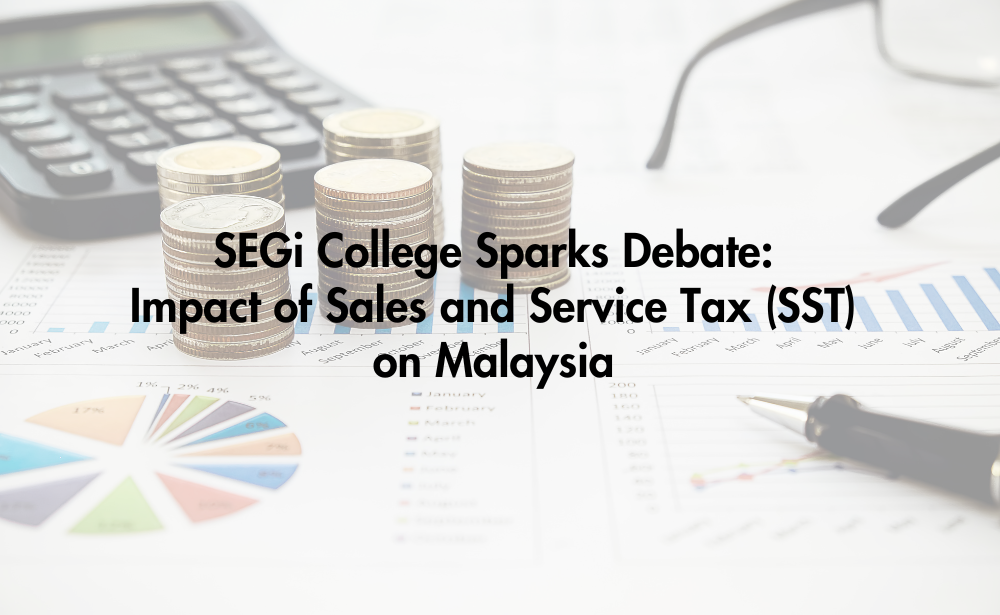SEGi College Sarawak recently delved into the complexities surrounding Sales and Service Tax (SST), sparking insightful discussions on its implications and effects on Malaysian households. Led by experts and educators, the exploration sought to dissect whether SST is a boon or a burden for the nation.
Firstly, understanding the necessity of SST implementation is crucial. Governments worldwide resort to such taxes for revenue generation, economic regulation, and ensuring tax fairness. For Malaysia, with a Sales and Service Tax (SST) rate of 8%, the impact on household income is a pertinent concern.
The imposition of an 8% SST introduces various considerations for households, notably impacting their cost of living and disposable income. Lower-income groups often bear a disproportionate burden, facing increased financial strain due to higher prices of essential goods and services. This regressive nature of SST can exacerbate inequality and limit access to vital services for vulnerable communities.
However, amidst these challenges, there’s recognition of SST’s role in government revenue generation, funding public services, and infrastructure projects. To address its adverse effects, policymakers must implement targeted measures to alleviate the burden on lower-income households and ensure equitable distribution.
SEGi’s engagement in this discourse underscores its commitment to fostering critical thinking and socio-economic awareness among its students and the community. Through such initiatives, SEGi continues to champion holistic education, preparing future leaders equipped to tackle complex societal issues and drive positive change.

